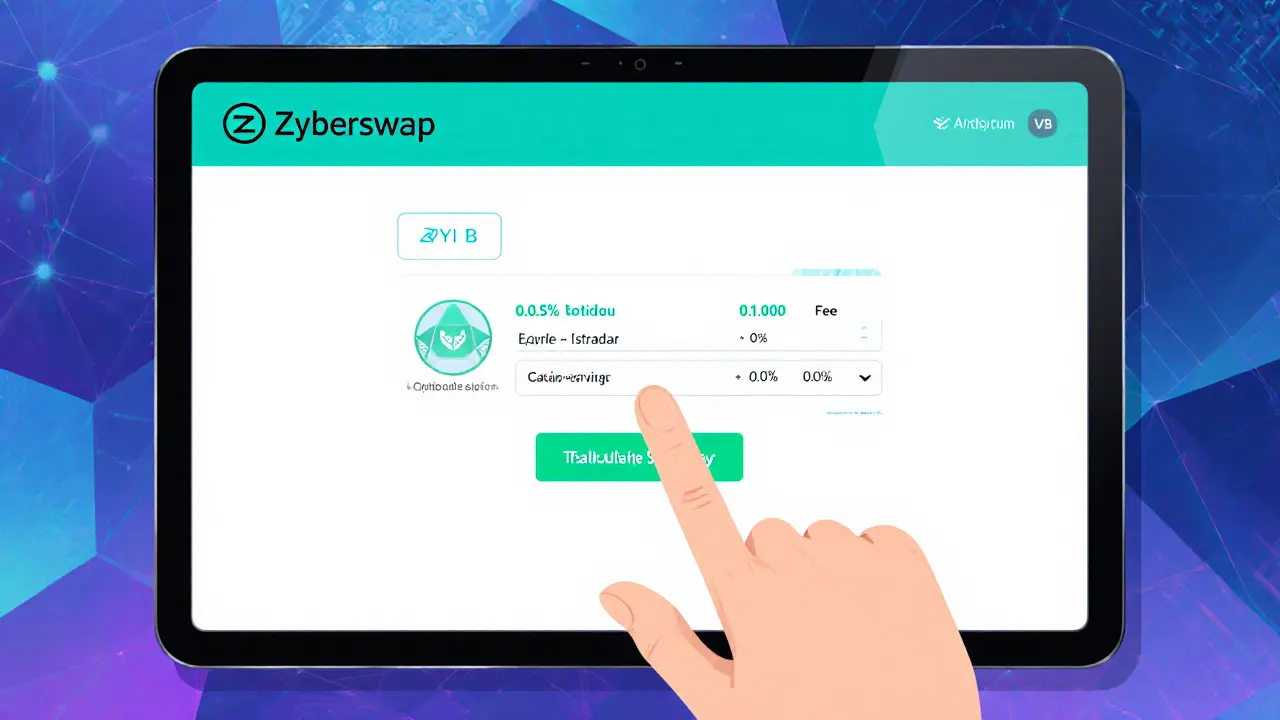Arbitrum Exchange: Fast, Low‑Cost Trading on Ethereum’s Layer‑2
When navigating Arbitrum exchange, a decentralized exchange built on the Arbitrum network, you’re entering a world where trades settle in seconds and gas fees shrink dramatically. Also known as Arbitrum DEX, it lets users swap tokens without a central custodian. The platform rests on Arbitrum, an Ethereum Layer‑2 rollup that boosts throughput, which itself is a prime example of Layer‑2 scaling, technology that processes transactions off‑chain to cut costs. By leveraging a decentralized exchange, a platform that lets users trade without a central custodian, traders keep full control of their assets while enjoying near‑instant confirmation.
The biggest draw of an Arbitrum exchange is the fee advantage. On Ethereum mainnet, a simple token swap can cost $10‑$20 in gas; on Arbitrum the same swap often falls under $0.10. This fee compression opens doors for high‑frequency strategies that would otherwise be uneconomic. Speed is another win: rollup blocks are submitted to Ethereum every few seconds, so confirmation times drop from 5‑15 minutes to under a minute. Together, low fees and fast finality make arbitrage, liquidity provision, and day‑trading far more viable.
Key Features Every Trader Should Know
First, liquidity pools on Arbitrum are deepening quickly. Major DEXs like Uniswap v3, SushiSwap, and GMX have launched Arbitrum versions, bringing billions of dollars of liquidity to the layer‑2 environment. This means you’ll find the same popular pairs—ETH/USDC, WBTC/DAI, and even niche altcoins—without the slippage that plagues low‑liquidity markets. Second, the security model mirrors Ethereum’s. Since rollup data is ultimately posted to the Ethereum main chain, any attempt to tamper with Arbitrum’s state would be rejected by the underlying blockchain. Third, the ecosystem now supports advanced order types, such as limit orders and multi‑hop routes, thanks to tools like 1inch and Matcha that aggregate across multiple Arbitrum DEXs.
Regulatory awareness is also essential. While the technology itself is neutral, the platforms that host Arbitrum trading must meet local licensing requirements. Recent articles on crypto licensing (e.g., US MSB and BitLicense guides) illustrate how exchanges secure compliance before launching on new networks. If you’re looking for a reputable venue, prioritize exchanges that publish audit reports, have clear KYC/AML policies, and are transparent about their fee structures. These safeguards protect you from the red‑flag‑laden services highlighted in scam‑focused reviews.
From a developer’s perspective, Arbitrum offers a familiar Solidity environment, making it easy to port existing contracts. The Optimistic Rollup design ensures that contracts behave just like on Ethereum, with the only difference being the faster block time. This compatibility means that DeFi tools—yield farms, staking contracts, and NFT marketplaces—can operate on Arbitrum with minimal code changes, expanding the range of assets you can trade on a single exchange.
Finally, keep an eye on cross‑chain bridges. To move assets between Ethereum and Arbitrum, users rely on bridges like the official Arbitrum Bridge or third‑party solutions such as Hop and Celer. While bridges add an extra step, they’ve become more reliable, with lower settlement times and clearer fee disclosures. Understanding bridge mechanics helps you avoid delays and unexpected costs when moving liquidity in and out of the Arbitrum ecosystem.
Below you’ll find a curated list of articles that dive deeper into licensing, token specifics, exchange reviews, and security best practices—all tailored to help you make the most of an Arbitrum exchange. Whether you’re a beginner looking for a quick start or an advanced trader hunting for nuanced strategies, the collection offers practical insights you can act on right away.

Zyberswap v3 Review: Fees, Features, and How It Stacks Up
Nov 18, 2024, Posted by Ronan Caverly
In‑depth review of Zyberswap v3 covering fees, liquidity, tokenomics, security and how it compares to major DEXs on Arbitrum.
MORESEARCH HERE
Categories
TAGS
- decentralized exchange
- crypto exchange
- crypto exchange review
- crypto coin
- crypto airdrop
- cryptocurrency
- CoinMarketCap airdrop
- cryptocurrency trading
- smart contracts
- tokenomics
- DeFi
- cryptocurrency exchange safety
- crypto airdrop 2025
- cryptocurrency airdrop
- cryptocurrency exchange
- MiCA
- crypto airdrop guide
- blockchain token distribution
- crypto token
- Portugal crypto tax
